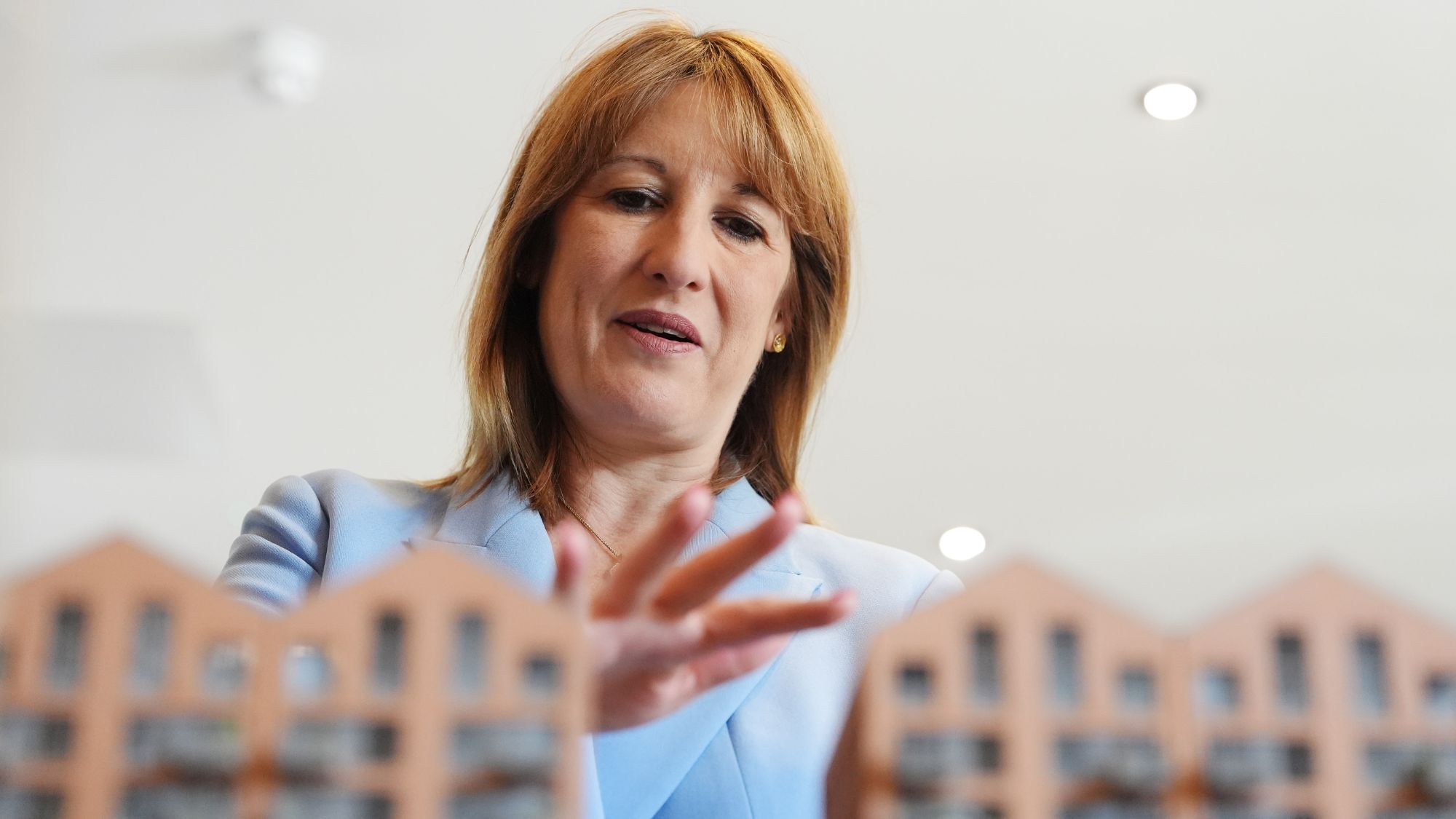Does an ageing population mean never-ending tax rises?
Philip Hammond warns taxes will keep increasing to cover cost of caring for Britain’s elderly

A free daily email with the biggest news stories of the day – and the best features from TheWeek.com
You are now subscribed
Your newsletter sign-up was successful
Taxes will keep on rising for years to come to cover the cost of caring for Britain’s ageing population, Chancellor Philip Hammond has warned.
Official figures have revealed the UK deficit has almost halved, dropping to its lowest level in 17 years in 2018-19 to drop to its lowest level in 17 years, apparently handing Hammond the chance to boost spending and move away from austerity.
However, instead the Chancellor said the tax burden - already its highest in more than 30 years - will rise further.
The Week
Escape your echo chamber. Get the facts behind the news, plus analysis from multiple perspectives.

Sign up for The Week's Free Newsletters
From our morning news briefing to a weekly Good News Newsletter, get the best of The Week delivered directly to your inbox.
From our morning news briefing to a weekly Good News Newsletter, get the best of The Week delivered directly to your inbox.
“The tax share of GDP has been rising across the OECD, and the reason is fairly straightforward - it is a function of an ageing population,” Hammond said.
According to the Office for Budget Responsibility [OBR], taxes amounted to around 37% of UK GDP last year – “a share not seen for decades and one of the highest since the 1950s” reports The Daily Telegraph.
“We have to recognise that as the population ages, the pressure on public services and spending will increase. The OBR forecasts suggest it will go on rising out to forecast horizon 50 years out as a result of demographic change in the population.”
Countries like Japan and Italy are finding that an ageing population combined with a workforce that is shrinking means income taxes will no longer be sufficient to support investment in social services and infrastructure at the current level.
A free daily email with the biggest news stories of the day – and the best features from TheWeek.com
“As pressures continue to grow on public services, including as a result of an ageing population that demands more and more expensive health and social care, we may see more discussion about the size of the state,” says Helen Miller in Prospect.
The state pension age is being raised to 66 to take into account the ageing population, but the reality remains that we are now far from “the demographic sweet spot in the era of Margaret Thatcher when the post-war boomers were younger and paying taxes, while not needing much public spending,” says executive chair of the Resolution Foundation, David Willets, also in Prospect.
“No amount of radical pruning of the NHS or state pensions now escapes this dilemma as it is hard to see any government expecting retired people to make ‘alternative arrangements’ in these sensitive areas” he adds, suggesting there is a “good argument” for the wealthier older generations to pay more tax on their assets rather than adding to the burden on the working population.
-
 Sepsis ‘breakthrough’: the world’s first targeted treatment?
Sepsis ‘breakthrough’: the world’s first targeted treatment?The Explainer New drug could reverse effects of sepsis, rather than trying to treat infection with antibiotics
-
 James Van Der Beek obituary: fresh-faced Dawson’s Creek star
James Van Der Beek obituary: fresh-faced Dawson’s Creek starIn The Spotlight Van Der Beek fronted one of the most successful teen dramas of the 90s – but his Dawson fame proved a double-edged sword
-
 Is Andrew’s arrest the end for the monarchy?
Is Andrew’s arrest the end for the monarchy?Today's Big Question The King has distanced the Royal Family from his disgraced brother but a ‘fit of revolutionary disgust’ could still wipe them out
-
 What to know before filing your own taxes for the first time
What to know before filing your own taxes for the first timethe explainer Tackle this financial milestone with confidence
-
 3 required minimum distribution tax mistakes to avoid
3 required minimum distribution tax mistakes to avoidThe Explainer Missteps in making withdrawals from tax-advantaged retirement accounts can cost you big
-
 Is duty-free shopping worth it?
Is duty-free shopping worth it?the explainer How to determine whether you are actually getting a good deal
-
 What the 2025 Autumn Budget could mean for your wallet
What the 2025 Autumn Budget could mean for your walletThe Explainer Chancellor Rachel Reeves will reveal her latest plan to balance the nation’s finances in November
-
 What taxes do you pay on a home sale?
What taxes do you pay on a home sale?The Explainer Some people — though not many — will need to pay capital gains taxes upon selling their home
-
 Clean energy tax credits are going away. Here's how to get them before it's too late.
Clean energy tax credits are going away. Here's how to get them before it's too late.The Explainer Trump's recently passed megabill promises the early demise of clean energy tax credits
-
 How will the new tax deductions on auto loans work?
How will the new tax deductions on auto loans work?the explainer Trump's One Big Beautiful Bill Act introduced a tax deduction on auto loan interest — but eligibility for the tax break is limited
-
 8 ways Trump's bill will change your taxes
8 ways Trump's bill will change your taxesThe Explainer The 'big beautiful bill' was recently signed into law. Here's what it might mean for your wallet.